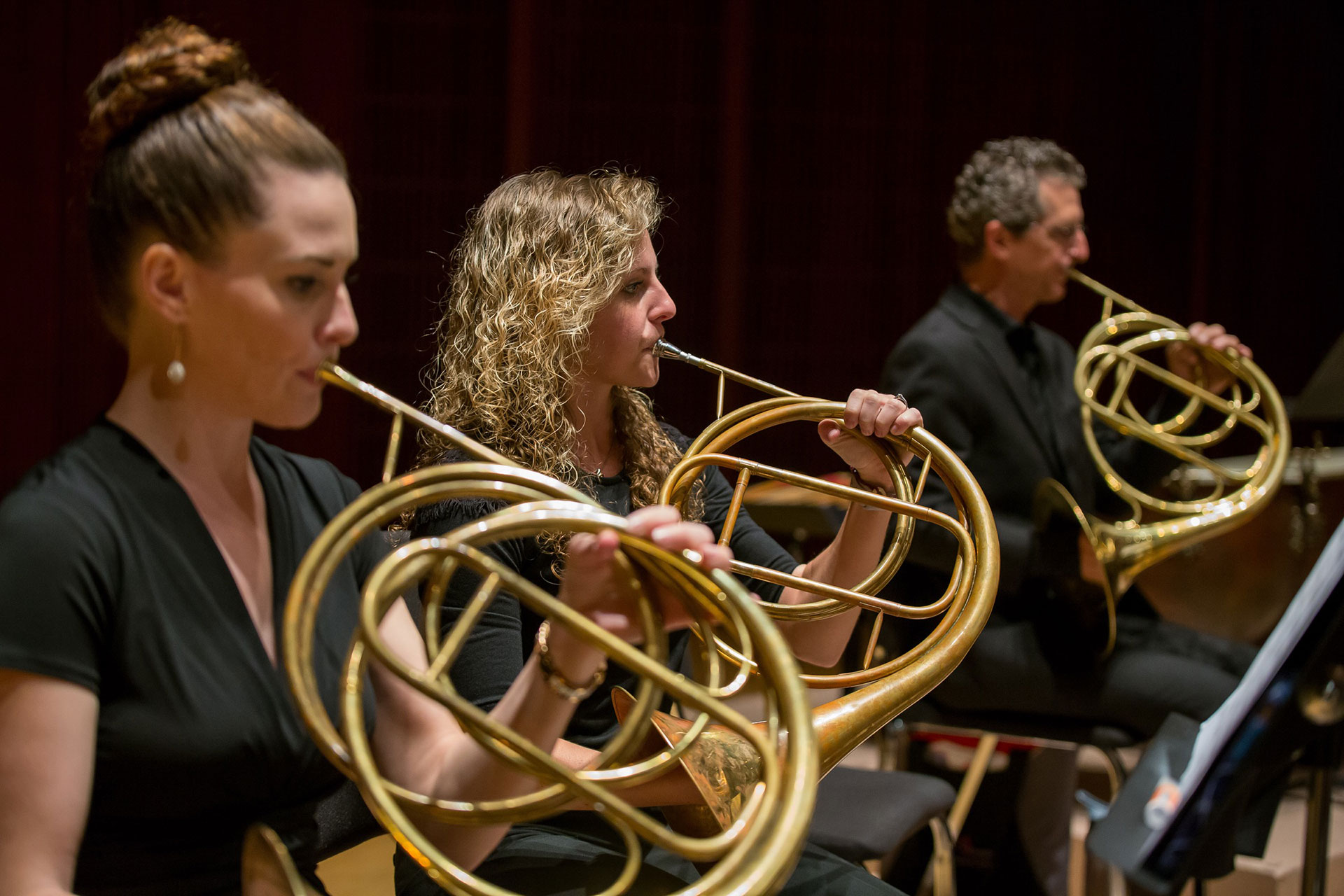Mercury to present romantic repertoire of Brahms and Mendelssohn
September 13, 2018 | UHCL Staff

There’s a reason why local theater lovers keep returning to University of Houston-Clear
Lake’s Bayou Theater for Mercury’s performances. They’ll perform their special interpretation
of Brahms’ Third Symphony and Mendelssohn’s Scottish Symphony on Friday, Oct. 5 and
Mercury’s Creative Director Antoine Plante said that, as always, the audience can
expect something different.
“We are excited because we are beginning the season with a great symphonic extravaganza,
but of course, with our own touch,” Plante said. “This is exciting because there are
at least three things the audience will get from us that they will not get in a regular
symphony. First, it’s the size of the orchestra. During Brahms’ time composing, 40
musicians in an orchestra was more common than today, when there would be double that
number. It makes for a more intimate experience.”
He said that as is often the case with Mercury, the musicians will perform standing.
“This is unique,” he said. “It gives the opportunity for more communication between
the musician and the audience. It’s more dynamic, the musician can dance and move.
It’s a more expressive way to make music, and that’s what we value at Mercury.”
Third, Plante said that they will use instruments that the composer used in his own
orchestra. “Brahms composed in the 1860s, and we can see a big difference in the brass
instruments between now and then,” he said. “There were no pistons in any horn at
that time. The wind was all ‘natural,’ and it creates a difference in sound. Also,
the woodwinds were made out of wood. It makes the oboes and bassoons have a particular
sound, and it’s unique for our ears.”
Plante said that in this concert, they are presenting two romantic symphonies written
40 years apart. “We are reflecting on the different approaches of these composers
to romantic music,” he said. “Mendelssohn’s symphony was inspired by the landscape
and the mood he saw and felt on a visit to Scotland,” he said. “Brahms said the grandest,
purest music doesn’t need to be anchored in anything like a poem or a landscape. It
can stand alone. One idea opposes the other, and that’s why we play the two in the
same concert.”
The repertoire of the romantic era is important, Plante said. “The way we perform,
it’s unique. You have to come to a Mercury show to hear it.”
About the Author:
Recent entries by
October 18 2022
Better technology transforms campus safety: Police Chief demonstrates SafeZone to students
October 14 2022
Student's skill with drones takes chicken turtle research to new heights
October 11 2022
Planting event to help UHCL restore native plants to campus, support environmental sustainability







